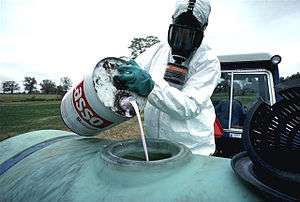Bioherbicide
A bioherbicide is a biologically based control agent for weeds. Among the three major types of pesticides (agricultural pest-control agents) herbicides are used to control weeds, or undesirable plants. (The other major classes of pesticides are insecticides, which control insects; and fungicides, which control fungi. Normally, any pesticide can only be expected to control, but not eradicate, agricultural pests.)
Almost every agricultural pest has at least one naturally occurring enemy that will reduce its population. Bioherbicides are weed-control agents that use such naturally occurring enemies, rather than depending on man-made chemicals. This can be important because agents of biological control ordinarily have many fewer, and much milder, effects on the environment than do synthetic chemicals. What is more, they tend not to lead to the public health problems that chemicals are associated with. These two advantages of biological control agents, including bioherbicides, do not however mean that they need not also be subjected to careful tests for environmental and public health safety.
Bioherbicides may be compounds derived from microbes such as fungi, bacteria or protozoa; or phytotoxic plant residues, extracts or single compounds derived from other plant species.
A bioherbicide based on a fungus is called a mycoherbicide.
In the industry, bioherbicides and other biopesticides are often referred to as "naturals".
